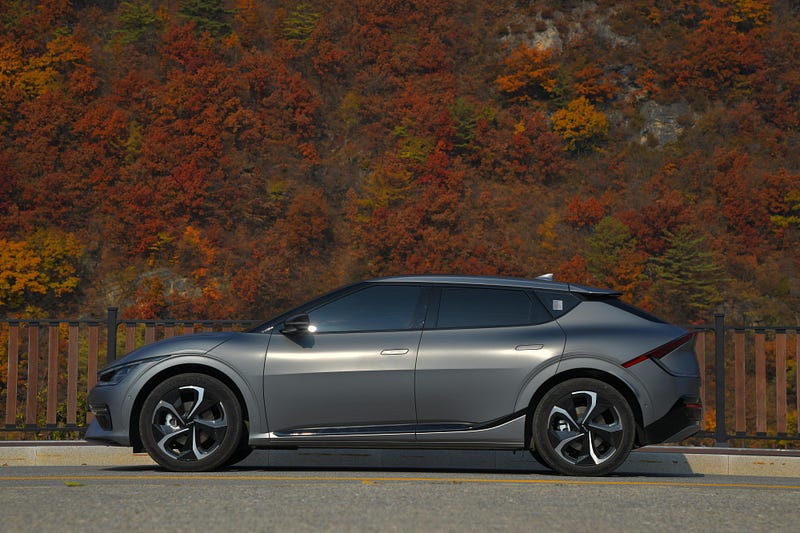The Future of EVs: Sodium-Ion Batteries Set to Transform the Market
Written on
Chapter 1: Introduction to Sodium-Ion Batteries
Electric vehicles (EVs) are often hailed as a greener alternative to traditional combustion engines. However, they come with their own environmental challenges. The lithium-ion batteries typically used in EVs rely on materials like cobalt, nickel, and manganese, which are associated with significant humanitarian and ecological issues, including harmful mining practices and labor exploitation. Additionally, the energy-intensive process required to extract and refine these metals raises concerns about sustainability.
Fortunately, a promising solution is emerging in the form of sodium-ion batteries. These batteries, which utilize sodium instead of lithium, are gaining traction, particularly as major manufacturers like CATL and BYD begin to invest in their production. This raises an important question: Could sodium-ion technology revolutionize the EV landscape?
Section 1.1: Understanding Sodium-Ion Technology
Sodium-ion batteries function similarly to their lithium-ion counterparts, facilitating energy storage and discharge through the movement of ions. The key difference lies in the materials used—sodium, which is abundant and easily refined, replaces lithium. Furthermore, the components for sodium-ion batteries are less complex, eliminating the need for heavy metals that are often associated with lithium-ion technology.

Why are sodium-ion batteries considered more environmentally friendly? Sodium is readily available, primarily sourced from salt, making it easier to refine. The materials used for both the cathode and anode are similarly simple to extract and process, which can minimize the risk of humanitarian crises often linked to lithium mining.
Subsection 1.1.1: Cost-Effectiveness and Performance
The environmental benefits translate into significant cost savings. Currently, lithium-ion batteries are priced around $132 per kWh, whereas sodium-ion batteries can be produced for as little as $40 per kWh—representing a remarkable 70% reduction. Moreover, sodium-ion batteries boast rapid charging capabilities, reaching 80% capacity in just 15 minutes, and a lifespan of approximately 3,000 cycles. While they may have lower energy density—ranging up to 160 Wh/kg compared to lithium-ion's 220 Wh/kg—they still present a viable option for more affordable electric vehicles.
Section 1.2: The Market Potential for Sodium-Ion Batteries
Many EV manufacturers are keenly interested in sodium-ion technology, as it could pave the way for sub-$20,000 vehicles that offer a range of 250 miles and fast charging times. This could lead to a surge in demand for more accessible electric vehicles.
Chapter 2: The Journey Toward Mainstream Adoption
While sodium-ion batteries have been in development for years, they are just now reaching energy densities that make them commercially viable. The manufacturing process diverges from that of lithium-ion batteries, which adds complexity to their market introduction.
The first video, titled "THE BIG EV LIE. Why They Won't Save the Planet & All About Dirty Electricity," discusses the hidden challenges in the EV industry, particularly regarding battery production and sustainability.
The second video, "Are EVs Actually WORSE for the Environment?" explores the environmental impact of electric vehicles, posing critical questions about their sustainability.
In 2023, CATL announced its sodium-ion battery, anticipated to have an energy density of 160 Wh/kg and a price point that could drop to $40 per kWh once production scales. This makes it a compelling alternative to Tesla’s well-publicized 4680 cells.
BYD, another major player in the EV market, is also entering the sodium-ion arena, leveraging their existing expertise in battery technology. Their blade battery, which utilizes LFP cells, highlights the potential for innovative solutions within the EV sector.
However, the future of sodium-ion batteries remains uncertain. While they promise a more sustainable and cost-effective alternative, the challenges of scaling production and ensuring ethical sourcing of materials will be crucial for success.
Conclusion: A Promising Outlook for Sustainable EVs
In conclusion, the potential for sodium-ion batteries to transform the EV market is significant. However, several hurdles must be overcome, including successful production scaling and ethical sourcing of materials. As demand for affordable and sustainable electric vehicles grows, the prospect of sodium-ion technology becoming mainstream may become increasingly likely.
Thank you for reading! Your support is essential for creating content like this. For early access to articles and more insights, follow me and my project, Planet Earth And Beyond, on various social media platforms.
Originally published on Planet Earth & Beyond
Sources: Energy Storage News, NEI, Will Lockett, Notebook Check, Elecktrek, Royal Society Of Chemistry, Nature